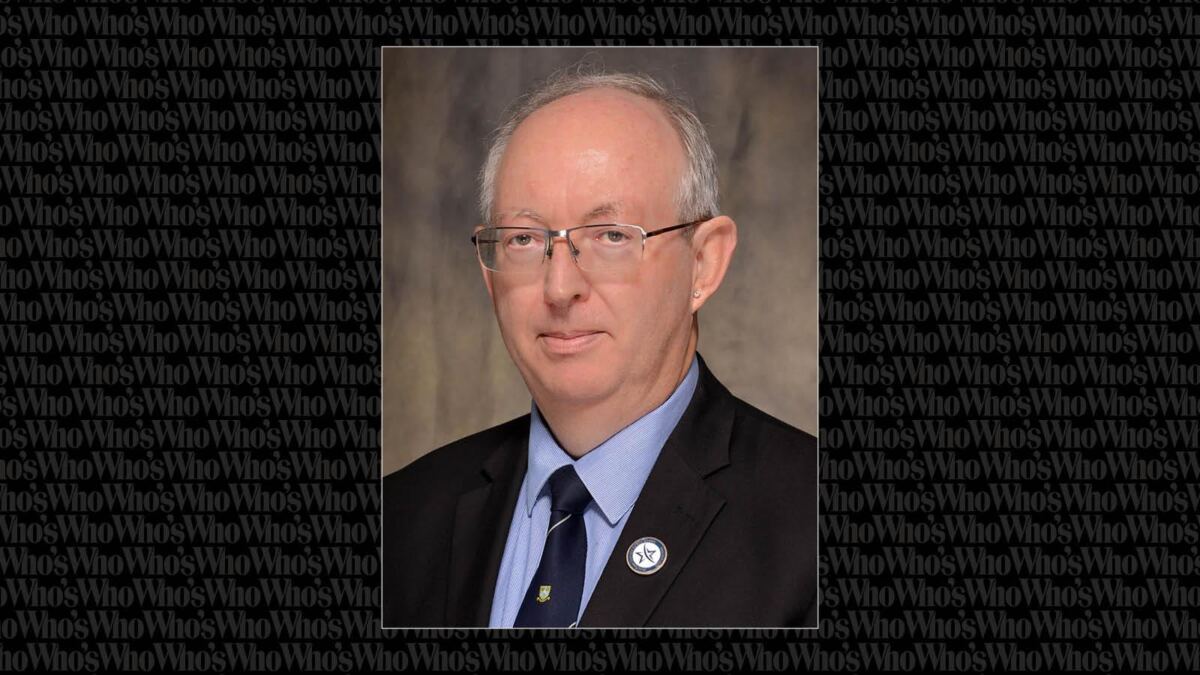Micheal Glisson, PhD, is the dean of instruction for health and human services at Lone Star College. He has spent over two decades shaping academic programs and advancing workplace cultures in higher education in the United States. He has a career driven by perseverance, innovation, and a commitment to helping others.
A Career Relaunch in the United States
Dr. Glisson’s career began in Australia, where he graduated program valedictorian from the Royal Melbourne Institute of Technology. As a trained radiologic technologist, he went on to advance his field by teaching and his own education. In 1994, he earned a Master of Applied Science by research in medical imaging from Monash University. In 2007, he earned a research Doctor of Philosophy in epidemiology and preventive medicine from the same institution. Dr. Glisson discovered a passion for incorporating his relevant research into advancing his teaching.
By age 25, Dr. Glisson had achieved a tenured position at the Riverina College of Advanced Education, which became Charles Sturt University. While there, he was promoted multiple times from junior to senior lecturer, finally serving as Head of School. In all these roles, he contributed to the expansion of his program, the college, and the transition of a college to a university that offers bachelor’s, master’s, and other postgraduate-level academic programs.
The journey from Australia to the United States required Dr. Glisson to restart his career. He worked a fast-food job while pursuing recertification. This resolve led first to a clinical role and then back to an educational role. His journey has seen him previously serve at MassBay Community College (MA), Gateway Community College (AZ), and South Louisiana Community College (LA). At these institutions, he introduced forward-thinking health education programs, established foundational structures, and created policies and procedures while delivering associated programmatic and regional accreditation processes.
A Balanced View of AI in Education
Dr. Glisson’s current role at Lone Star College is far from ordinary. Since 2018, he has navigated initiatives and natural events that challenge traditional approaches to health education. As we enter a new era of learning that will be driven by artificial intelligence (AI), he emphasizes the importance of adaptability.
Dr. Glisson recognizes that students have also changed significantly. “I tell my faculty all the time, ‘They are not us. We must meet them as fully digital competent,’” he says. However, he exercises caution. While AI is a disruption, it has its positive applications. He believes that this technology cannot replace skills.
An Advocate for Practical Solutions
A pragmatic approach to education is what Dr. Glisson prefers. One thing he challenges is the overuse of the word leadership. For him, much of what is called leadership is emotional intelligence, intuitive situational awareness, great initiative, fantastic management, and the shared outcomes of the cooperative team involved.
Dr. Glisson credits his success to a belief that it’s not what happens to you that defines you but how you respond. This philosophy underpinned his oversight during the merger of two colleges in South Louisiana. With this philosophy and teamwork, skepticism gave way to trust, creating stronger faculty connections and deeper community trust.
As an education professional, Dr. Glisson is committed to cultivating environments where faculty and students can thrive. The work he’s done at Lone Star College includes refurbishing laboratories, expanding access to health credentials, maintaining the pipeline of new health professionals to their communities, and addressing the unique challenges of today’s learners.
Sage Words Inspire a Legacy of Service
“He was a good person, and he tried to help others.” Dr. Glisson gave that answer in a college psychology class when asked what he wanted on his tombstone. Since then, he has embraced that sentiment as one of his life’s mottos. It’s a principle that guides every decision, from mentoring faculty to developing programs that improve student access to health care education.
Dr. Glisson looks forward to concluding his career as a college chief executive officer. It is a role that would represent a professional milestone. If there is a secret to his accomplishments, it boils down to one thing: “My success is working hard,” he says.

